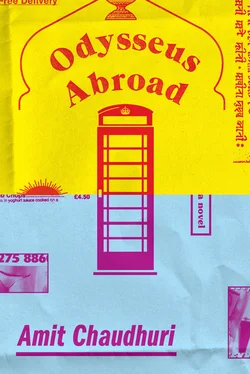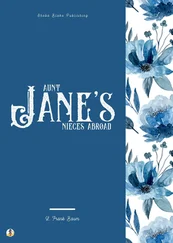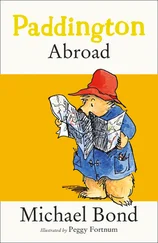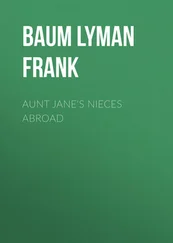Both sneakers had come off.
“Who would this already-dead person be?” asked Ananda — witnessing, in his head, the disconsolate progression of events.
“Oh it could be anyone. But someone who knows the dead person. Maybe a friend. Or it might be a relation.”
Ananda was soothed by this. He’d never much cared for the conception of the afterlife. Even misery in Warren Street was more congenial to him than any possible idea of paradise. But the thought of being reunited with a known figure who’d keep you company, after your death, on your journey to the hereafter spoke to everything in him that, ever since he could recall, was groping its way through this world.
“Would you be scared if you saw such a — saw someone of that kind?”
“Of course I would!” said his uncle, histrionically enlarging his eyeballs. He scratched his ankle, making a rasping sound. “I don’t want to see a ghost!”
“If it were someone you knew?”
“Even if it were my mother, my dear friend,” he said, absolving himself of being the type that rejoiced upon seeing a phantom. “I would be — I’d be terrified!”
“Mm,” said Ananda. He switched on the TV and was greeted by a gale of uproarious laughter. Terry and June were in bed, confabulating.
“I had a dream once,” said his uncle, oblivious to the mirth, which had as suddenly subsided. “You know that when our father died, we three younger ones — Dukhu, your ma Khuku, and I — were reigned over by the three older siblings who had forceful personalities: Chhorda, Sejda, and Didi. Our mother protected and looked over us all, but she had no real influence over us. Mejda was too dreamy. It was these three who controlled us: the committee.” He pursed his lips at the memory of their authority. “Then Sejda — who sang Tagore songs more beautifully than anyone else I’ve heard — died at the age of thirty.” He looked at Ananda; Ananda looked back at him, experiencing a sorrow that was distant, yet curiously personal. Ananda had never seen this uncle; he remained forever youthful in these stories; forever in Sylhet in undivided British India. “We were all completely shattered. Others cried; I grew very quiet. We knew he had a bad heart, but he was so versatile — he baked wonderful cakes, and played the harmonium magnificently (no one taught him, don’t know how he picked it up) — that we never expected it to happen.” Further merriment: Terry had emerged awkwardly from bed and was wearing his trousers. “Two days later, I had a dream. Sejda had just got back home with a group of English officers he was friendly with. He was sitting in the drawing room — they were talking and laughing loudly. Then Chhorda called me aside and said, ‘Doesn’t he know he can’t do that? Why is he sitting over there? Go and tell him he’s dead!’ ” Rangamama sighed. “He gave me that chore — to go and break the news.”
Chhorda, the brother for whom he sent a monthly cheque to Shillong.
“You should read the book,” he said semi-urgently, as if it wasn’t too late. “Can you read Bengali?”
“A little,” Ananda confessed.
“It’s known everywhere. In China they call it Deb-chan .” He spat out the syllables. “Deb-chan!” he said again, almost making an authentic Chinese sound.
“Rangamama!”
His uncle looked up.
“What are you doing?”
He’d drawn blood. He’d rolled down one sock, and, while endorsing Bibhutibhushan’s tale, was mauling an itch.
“Sorry.” A bit sheepish. “These feet get no air.”
He brushed off the dead skin. “Do you have the Betnovate C?” he asked, with the incisiveness of a connoisseur.
Ananda’s mother had carried two tubes with her for her brother and his longstanding complaint and left them at Warren Street.
Ananda groped among objects on the top shelf of the cupboard adjoining the bed.
There was a sound like a thunderclap. Then a drumbeat of footsteps that gathered and grew till there was a bustling transit right past Ananda’s flat. After two or three seconds, there was emphatic footfall upstairs.
“Here,” said Ananda, handing over a small green tube.
His uncle squeezed and abstractedly daubed the cream on the raw, pink spot. Ananda couldn’t bear to look.
“Aren’t you hungry?” asked his uncle, massaging the ankle. “I could eat a horse!”
—
“Why don’t we eat at the Indian YMCA? Their meals are superb…”
So that’s why they were heading for Fitzroy Square! Ananda was resistant to the large breast of chicken in the red YMCA curry, along with sides of daal and vegetables (stubs of beans and carrots) and the heap of white rice. He wanted pilau rice. And maybe the reliable quick fixes, lamb bhuna or chicken tikka masala.
“No, Rangamama. Not the YMCA.”
“Why not?” Genuine disbelief at this jettisoning. “The chicken curry is mouth-watering!”
Not egregious, maybe, but certainly not “mouth-watering.” And Ananda didn’t take to the canteen ethos, irrepressible men in tight suits and wives in salwar kameez congregated in solidarity in tables of six. Oh, he’d forgotten the ice cream: gratifying bonus. Non-veg was just two pounds fifty a head.
“No,” he said.
Fitzroy Square: the outskirts of Bloomsbury. Redolent this time of year. Again, Ananda thought of his mother, her omniscient chatter, her crusades. His uncle and he felt incomplete without her. Why did he miss her? Was it what Sunjay (finalist at LSE, staying upstairs before the Patels came along) had said: “The reason you want your mother here is because she cooks you nice meals.” How far he’d been from the truth! “Of course not,” he’d replied at once, but had been unable to explain what her proximity denoted — because it was a recent, and astonishing, discovery for him too. He hadn’t been aware of his mother as a separate being when he was a child.
The moon was up, but a deeper layer of the sky — under its skin — glowed with the remnants of sunshine. You could hear shouting in the distance. It was best to be careful of revellers. All week, they’d have been set a punitive regime. They’d have curbed every impulse and desire. The shouts now were shouts of freedom. Drink enabled them to find their true voices. Tonight and tomorrow evening they’d wander about, seized by celebrations, hectoring you when they didn’t recognise you. Wisest to pretend you hadn’t noticed, and give them a long rope to hang themselves with.
“What about here?”
Ali’s Curry House.
They’d come full circle, almost. The corner of Whitfield and Grafton streets: on their right, Diwan-i-Khas, and, on the left, just by the Jamaican record shop (dark now), Ali’s. A venerable Pakistani gentleman in a traditional long jacket was pottering about behind troughs filled (hard to guess from when) with a morass of saag gosht , a dead pool of chicken curry, daal, and a bank of pilau rice by another basin discreetly crowded with florets of gobi.
“I’m not eating that.”
“Why? It looks marvellous!”
“The last occasion I ate their food — it was with you — I got a stomach upset.”
Mr. Ali — if that’s who the patient diminutive man was — smiled affectionately from within while presiding over the troughs.
“Well,” said his uncle, “the English say that Indian food is useful for a good purging.”
If you were reconciled to the curry being a laxative, you could even view it as a variety of health food. Ananda didn’t want to dwell on the merits of this argument. They walked a bit further up.
Finally, they relented and entered the restaurant almost next to Walia’s, the Gurkha Tandoori. Why it was so called they were uninterested in — nevertheless, the name (and the red wallpaper in the hallway) set up expectations of proud and outdated martial codes.
Читать дальше











